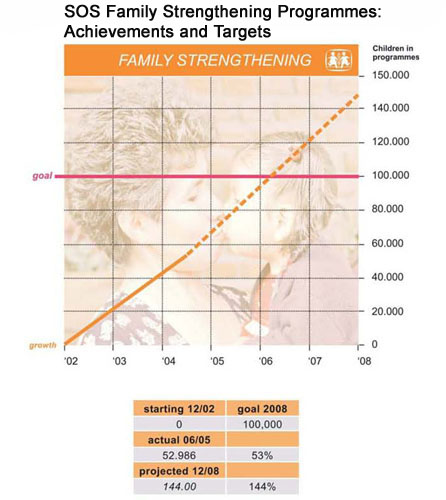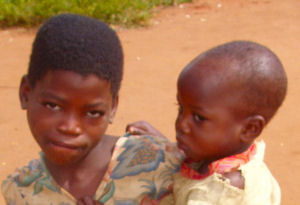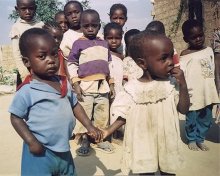Aids Africa Children: HIV / AIDS Orphans

We are all becoming more and more aware of the scale of human suffering caused by HIV/AIDS in Africa, especially for the children who are orphaned and often lose siblings to AIDS.
SOS Children has grassroots projects in most countries in Africa (see Africa Charity projects) working at a simple level giving practical support to children. Last year, thanks to people like you, SOS Children supported 53,000 more AIDS orphans in their old family home. Three visits a week with practical help, food, medicine and love. Children are saved one by one and every contribution or small regular donation helps us to help another child.
However, there is so much more to do...Our project co-ordinator, Jenny, visited the Chadza region of Malawi on the outskirts of Lilongwe. Jenny writes: "SOS Children works with communities there through village development committees to identify children orphaned by AIDS. I met one of these children, a girl called Lahema, she is eight years old and cares for her younger brother and sister who are both HIV positive. Having watched her parents die and now caring for her dying siblings it is hard to imagine how she can smile. She was happy to meet me and obviously pleased to see Lonnie the SOS Children nurse who accompanied me. Lonnie visits Lahema 3 times a week to provide her with medicine, food, money and clothes. Lonnie is also the only adult Lahema can share her fears with and ask for advice."
AIDS in Africa background

There is an epidemic of AIDS engulfing much of Africa, especially sub-Saharan Africa. In some African countries it is estimated that 40% of the working-age population has contracted HIV, with younger and more successful workers being most likely to be affected. However, this is never uniform across a population; 40% of a whole African country will mean there are areas where virtually everyone has contracted HIV/AIDS. The worst affected countries include Swaziland, Botswana, Zimbabwe and Lesotho. In places like these, village after village has no young adults left. The scale of the problem is overwhelming.
It is hard to know how to approach such a situation. SOS Children has developed a strategy for AIDS orphans in Africa where we do not move children from their familiar background but strengthen their community to look after them. SOS has projects helping more than 52,000 African children orphaned by AIDS in more than twenty African countries, and is growing as fast as you allow us to. We are continually improving our approach with the exchange of experience and best practice. Details of more established projects, such as all our Children's Villages in Africa can be found on our Africa Pages. More about our AIDS orphan programmes are divided into Central and East Africa AIDS Orphan projects and Southern Africa AIDS orphan projects.

Inevitably many of those affected are the parents of young children. When parents start to develop full-blown AIDS, they cannot work and need to be looked after. But the situation is so bad that in parts of Africa no adults are able to help. The children not only have the distress of seeing their parents become weaker and weaker but they no longer have anyone providing for them and often have to try to help care for their parents. It is not unusual to find very young children or some of their brothers and sisters, with AIDS (about half of all children of HIV-affected African mothers end up with AIDS themselves), orphaned and caring for toddlers. It is estimated that 90% of the world’s HIV-infected children live in Africa, and more than half a million die of AIDS each year.
AIDS in Africa: the way forward?
So is this a hopeless situation? No, it is tragic but not hopeless. At present, for those infected with HIV/AIDS all we can try to ensure is that they are loved and cared for as they grow weaker. For the many young children in Africa who do not have HIV/AIDS, we can make a huge difference. The difference between love and abandonment, between a group of young children scavenging for scraps and a small child-led family with adequate nourishment and even the chance of school.